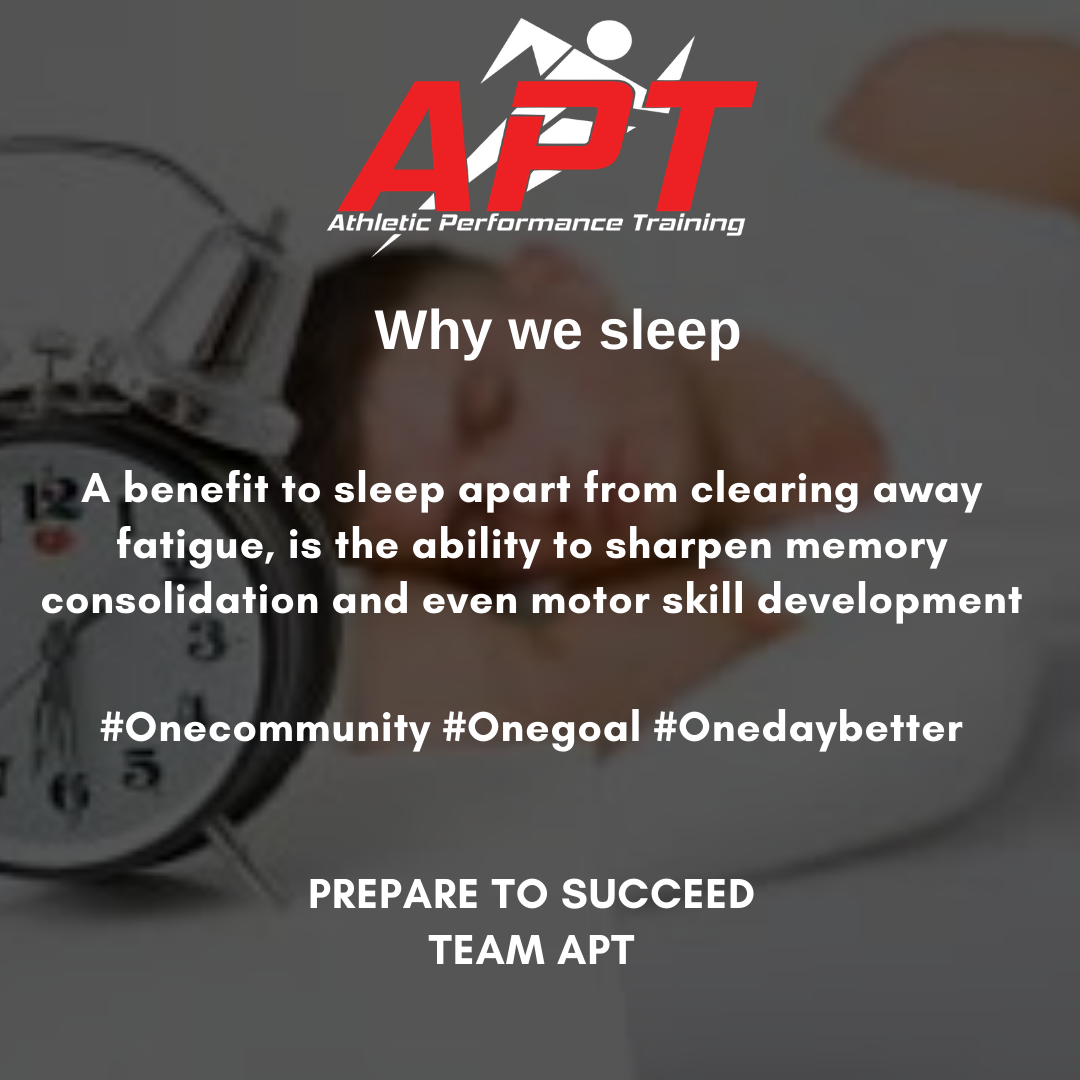Why we sleep

Why we sleep
For anyone looking for a good read, Why We Sleep by Dr. Matthew Walker is an informative choice and the best selling book on sleep in recent years. There are many takeaways that I could dive into for this post, but for today we’ll focus on some of the benefits athletes can attain if they dial in their sleep patterns. The common recommendation you’ll hear when talking about how much sleep an individual should get always comes back to the magic number 8, but let’s keep in mind that this is the average recommendation. For teenagers, young adults, and especially athletes, falling on the higher end of this recommendation (8-10 hours a night) would be the best case scenario. Sadly, with earlier school start times and sports practices going late into the day, it makes this recommendation a tough reality. However, if your personal development and athletic abilities are a top priority to you, do your best to accommodate these times.
Forming proper sleep and rest habits are important to optimize recovery of your body. You need at least 8 hours of sleep to rebuild muscles you broke down during the day. Develop a consistent sleep pattern; do not let Internet, smartphones, or television prevent you from sleeping at night.
Sleep is the best way to rid your body of fatigue that accumulates throughout the day. Most people know that sleep is restful, but can’t quite explain why. One reason among many, relates to a chemical compound called adenosine. Throughout the day your body has to create energy to fuel the demands you put it through. As energy is created, this compound adenosine is also produced. As the day goes on and you use more and more energy, adenosine accumulation grows higher and higher. Adenosine is essentially built up fatigue, and when concentrations in the brain reach a high amount, they will begin to signal the body that it’s time to rest again.
Another benefit to sleep apart from clearing away fatigue, is the ability to sharpen memory consolidation and even motor skill development. During sleep, your brain shifts facts/memories that you were exposed to during the day from the short-term storage area (the hippocampus for those wondering), to the long-term site (the cortex). Essentially you are freeing up room for more information to be stored when you awake - before this process inevitably repeats itself the next time you fall asleep. In addition to this increase in memory, the motor skill development is seen to improve during the final stages of sleep each night. Your brain is able to revisit skills that you were learning throughout the day, and then rehearse these skills at a faster rate overnight. Therefore when you wake up, you can perform these skills more seamlessly than the day before. For athletes that spend hours a day trying to improve technical skills, following it up with a full night of sleep will be more beneficial for skill development than trying to shave off a few hours of sleep to continue practicing.
The book goes into much greater detail about the various benefits of sleep, and how it relates to daily patterns, improved health, performance metrics, disease prevention, and much more as well as all of the research to back it up.
Prepare to Succeed,
Team APT
